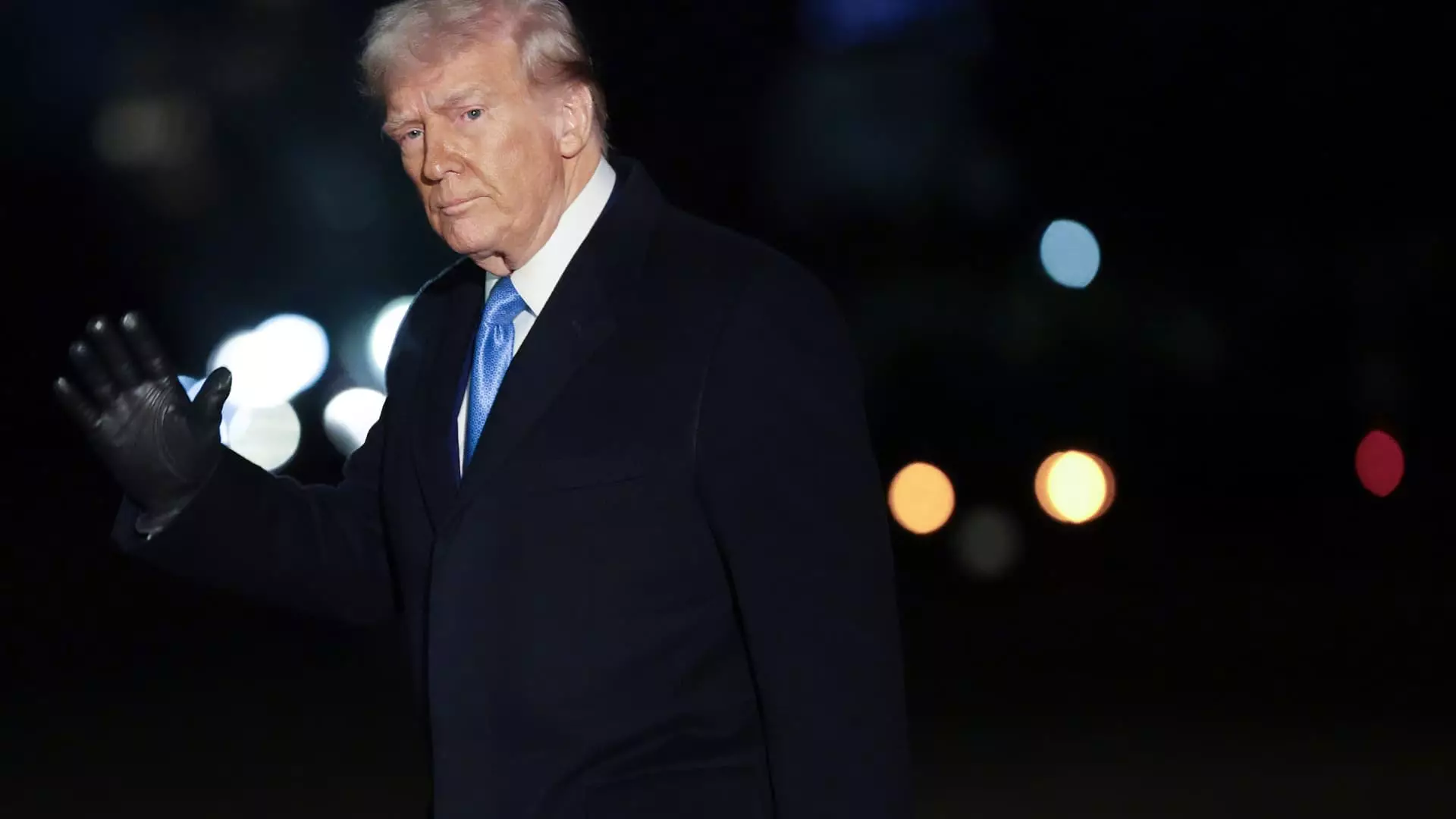In a notable turn of events, U.S. District Judge Adam Abelson has issued a temporary injunction against former President Donald Trump’s initiatives aimed at dismantling diversity, equity, and inclusion (DEI) programs within federal agencies and affiliated enterprises. This decision, rendering Trump’s directives potentially unconstitutional under the First Amendment, serves as a crucial critique not only of the former administration’s policies but also of the broader implications for free speech and advocacy within the context of social justice. Amid ongoing legal battles, this ruling highlights significant tensions between equity efforts and governmental authority in addressing perceived discrimination in various sectors.
Judge Abelson articulated that the directives issued by Trump and further endorsed by his administration significantly infringe upon constitutionally protected speech. The ruling came about as a response to a lawsuit filed by the City of Baltimore and several advocacy groups. Their contention hinges on the assertion that efforts promoting inclusion have been extensively recognized as both legal and essential for decades. This rationale effectively positions DEI initiatives as mechanisms for addressing historical injustices, particularly relevant in a social climate still reeling from racial tensions and activism sparked by tragic events that drew national attention.
The plaintiffs’ argument rests on a poignant observation: “efforts to foster inclusion have been widespread and uncontroversially legal for decades.” By blocking Trump’s initiatives, Abelson underscored that executive actions must align with the principles of free expression, particularly in contexts that aim to rectify long-standing inequalities within various societal dimensions.
The core issue extends beyond mere administrative decisions; it’s about the appropriateness of the executive branch using its power to enact broad changes that may contravene the foundational rights enshrined in the Constitution. The lawsuit posits that Trump exceeded his authority, targeting DEI programs that serve a crucial role in fostering workplace environment changes that address discrimination actively.
Moreover, the Trump administration’s claim that these directives do not suppress speech raises important questions about the balance of power in governance. The administration contended that the orders were a step against unlawful discrimination rather than a clampdown on expression. However, Judge Abelson deemed this argument unsatisfactory, stating the vagueness surrounding Trump’s directives left room for chilling effects on essential speeches advocating for diversity and equity initiatives.
President Trump’s initiatives must be understood within a larger societal framework heavily influenced by the events of 2020, particularly the public outcry against systemic racism and calls for reform in policing and societal structures. In the wake of these debates, DEI policies gained traction in both corporate and public sectors as vital tools for addressing systemic inequity faced by marginalized groups. Critics of Trump’s stance assert that the elimination of these initiatives simply reinstates a status quo that historically favored certain demographics while silencing vital conversations regarding inclusivity.
This public and private sector resistance reflects a profound commitment to social justice, aiming to create pathways for those left on the periphery of opportunity. As DEI programs continue to trigger significant pushback from conservative spheres, developments such as Judge Abelson’s ruling reinforce the notion that the fight for equity transcends the political battlefield—becoming a factor that permeates public opinion and steering dialogue towards acknowledgment and rectification of existing disparities.
As the legal proceedings continue, the ramifications of the injunction issued by Judge Abelson will likely resonate throughout both governmental and corporate landscapes. The decisions emanating from this case will set precedents that could either embolden or constrict the future of DEI initiatives across the United States. The chilling of speech as recognized by Abelson poses a pertinent risk amid the national discussions on equity and rights.
While the White House has yet to respond vocally, the necessity for a nuanced understanding of how government and policies interact with societal progress remains evident. The forthcoming resolution to the lawsuit may not only determine the fate of DEI policies under federal governance but will also illuminate the broader societal commitment to heal historical divides through collective engagement rather than exclusion. The evolution of this landscape is crucial, as it reflects the pulse of a nation grappling with its identity and principles in the face of urgent calls for change.

